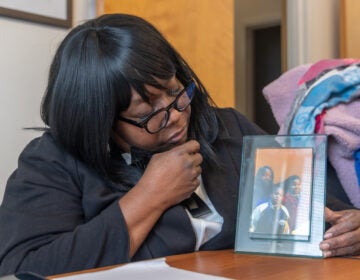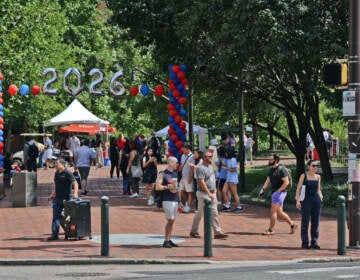Pa. coronavirus recovery: Philly to resume indoor dining in Sept. with restrictions
On Sept. 8, Philly restaurants can resume indoor dining at reduced capacity. And alcohol can only be served with meals at tables, so no indoor bar seating.
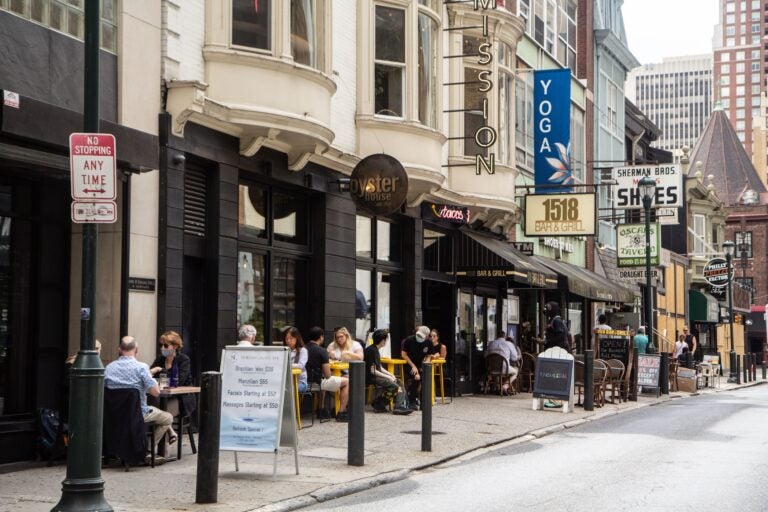
(Kimberly Paynter/WHYY)
Updated: 5:38 p.m.
___
Are you on the front lines of the coronavirus? Help us report on the pandemic.
On Thursday, the Pennsylvania Department of Health reported 791 additional positive cases of COVID-19, bringing the statewide total to 126,149. The state reported 15 new deaths from the virus, bringing the total to 7,538.
Philadelphia on Thursday reported 105 new confirmed cases of COVID-19 for a total of 32,674. The city reported no new fatalities, and the death toll stood at 1,735 people.
Indoor dining to resume in Philly
Philadelphia restaurants may resume indoor dining on Sept. 8 — with several restrictions, city officials announced Thursday.
Restaurants will only be able to serve 25% of their seating capacity.
Tables must be at least six feet apart and have four or fewer seats. The hope is to discourage people from eating with others who aren’t part of the same households, said Health Commissioner Thomas Farley.
Customers don’t have to wear masks while they’re dining, but must have them on when they enter and leave a restaurant.
Servers must wear masks and face shields at all times.
Alcohol will only be served with meals at tables, meaning indoor bar seating will remain off-limits.
“We will be enforcing these regulations as much as we can,” said Farley during a virtual news conference on Thursday.
The city will send inspectors into restaurants — proactively and in response to complaints.
If restaurants don’t comply with the city’s restrictions, they will be fined or shuttered, said Farley.
“We will be quick to close restaurants,” he said.
Movie theaters and performing arts venues will also be allowed to reopen starting Sept. 8 — the day after Labor Day.
Those locations must limit audiences to 25 people, who must all wear masks.
No food or drink can be served.
Farley said the reopening plans will be reversed if the city witnesses an uptick in cases between now and the scheduled reopening date.
“We will do this reopening very carefully,” he said.
The number of positive cases each day is on the decline. The positivity rate is also trending downward. Since July 19, it’s dropped from 5.4% to 4%.
Both metrics informed the city’s decision to resume indoor dining.
Protesters plead for unemployment benefits extension
Nearly 100 people marched outside City Hall on Thursday to call on Congress to extend the federal unemployment benefits that expired at the end of July.
Sam Specter was one of them.
She served food to sports fans at Lincoln Financial Field and Citizens Bank Park until March, when she was laid off by Aramark. The filed for — and has received — unemployment, but said she relied on the additional weekly benefit to feed herself and her daughter.
“Right now, my unemployment check is the only way I can continue to provide for me and my daughter. School supplies and school uniform costs are right around the corner. I won’t have enough without the $600 extension,” said Specter.
Joia Morello lost her job as a stagehand in early March. She filed for unemployment a few days later, but still hasn’t received her first check.
The $600 payments were a lifeline.
“It’s not like we’re unemployed all the time. This is not our fault. This is their fault. And we don’t even go back to work until next year. How am I supposed to survive?” said Morello.
Under a program created by the CARES Act, the federal government issued $600 checks each week to supplement regular unemployment payments during the coronavirus pandemic.
After Congress was unable to reach another deal on a coronavirus relief package, President Trump issued a memo that will ultimately provide some of the people who had been receiving the $600 supplement with a $400-a-week supplement for up to five weeks.
That program has not started in Pennsylvania yet.
New school year raising concerns about child welfare
As thousands of Pennsylvania students get ready to start a new — and fundamentally altered — school year, the state Department of Human Services is urging the public to be on the lookout for signs of child abuse.
Due to the coronavirus pandemic, thousands of students will be learning from home for at least part of each week. Officials say that increases the risk of child abuse by a parent or guardian.
“This really requires us to rethink how we can support child safety,” said Jonathan Rubin, deputy secretary for the state’s Office of Children, Youth and Families, during a virtual news conference on Thursday.
Signs that a student may be living in an abusive environment include: unexplained injuries, chronic anxiety, poor impulse control, flinching or avoiding being touched and cruelty to animals and others.
DHS Secretary Teresa Miller said people should “listen to your intuition” if they suspect a child is in danger and call the state’s ChildLine to make a report, which can be done anonymously. The tipline is available 24/7 at 1-800-932-0313.
“Making the call allows trained child welfare professionals to follow up,” said Miller. “Without that call, that process cannot begin.”
DHS is also urging parents to be hypervigilant while their kids are at home.
Medications and guns should be stored in places they can’t get to. Parents should never take their eyes off their child if they’re near a tub, pool or body of water.
Since March 1, the Children’s Hospital of Philadelphia has seen a three-fold increase in the number of infant and toddler hospitalizations due to ingestion or exposure to prescription opioids or illegal drugs compared to the same time last year, said Rubin.
Philly creates child care drop-off sites
Philadelphia will have 31 drop-off sites this fall where families can take young children who need supervision during the day, the city announced Thursday.
The 31 “access centers,” located mostly at recreation centers and libraries, are supposed to be a safety valve for families whose caregivers need to work during the day and who cannot afford child care. Families will be required to register.
For more information about the centers, click here.
Pa. launches new loan repayment program
Pennsylvania is offering financial assistance to certain primary care providers with outstanding medical school loans.
Under the PA Primary Care Loan Repayment Program, applicants must provide care in areas federally designated as Health Professional Shortage Areas or serve a minimum of 30% low-income patients.
The goal is to keep these professionals in communities where there’s a dearth of health care practitioners.
“Regularly seeing a health care provider is one of the most important steps a person can take to improve their health,” Secretary of Health Dr. Rachel Levine said in a statement. “This funding helps us ensure that those living in underserved areas have access to primary medical, dental and behavioral health care services. We want to make sure that all Pennsylvanians have the ability to regularly be treated at a location that is convenient to them.”
Applicants can be physicians, dentists, physician assistants, certified registered nurse practitioners, licensed clinical social workers, licensed professional counselors and marriage and family therapists.
The program will award a total of $625,000.
Those approved for loan repayment must serve two years at an approved primary care practice site.
WHYY’s Avi Wolfman-Arent contributed reporting.

Get daily updates from WHYY News!
WHYY is your source for fact-based, in-depth journalism and information. As a nonprofit organization, we rely on financial support from readers like you. Please give today.



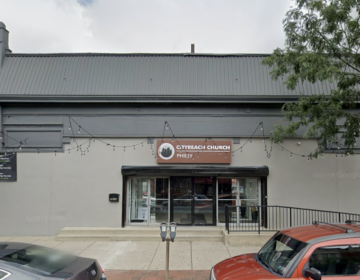
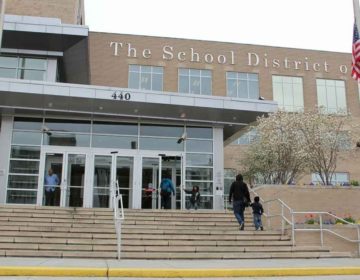
![CoronavirusPandemic_1024x512[1]](https://whyy.org/wp-content/uploads/2020/03/CoronavirusPandemic_1024x5121-300x150.jpg)
